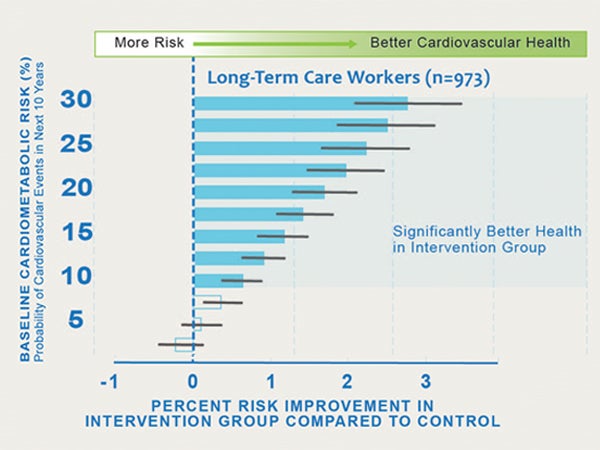A reduction in stressful conditions at work has now been linked to a reduction in cardiovascular disease (CVD) among those employees who were at an elevated risk of CVD at the start of the intervention study, especially if they were older workers. Researchers affiliated with The Work, Family & Health Network Study deployed interventions at two different types of works sites (IT and long-term care) designed to increase work-life balance…
A first look at cardiovascular disease among an older (and newer) population
Populations in middle-income countries, in many cases, are aging at a faster rate than high-income countries, and these countries typically lack the resources that help to meet the health challenges that coincide with living longer. A new study by a team of HAALSI researchers, including Harvard Pop Center Director Lisa Berkman and faculty member Stephen Tollman, characterizes the CVD profile for older subset of individuals within the aging population, and…
Continue reading “A first look at cardiovascular disease among an older (and newer) population”
Can programs that promote well-being help to improve cardiovascular health?
Given the strong connection between optimism (and other signposts of psychological well-being) and cardiovascular health, Laura Kubzansky and colleagues recommend in the Journal of the American College of Cardiology (JACC) that rigorous interventions be designed to evaluate programs geared towards promoting psychological well-being.
